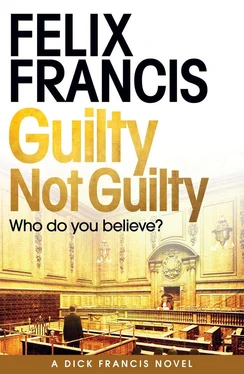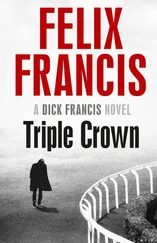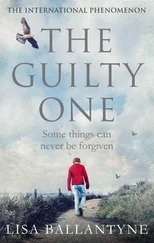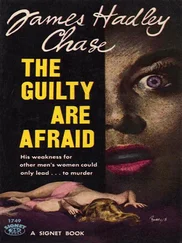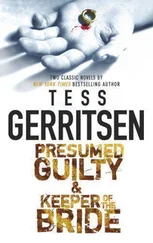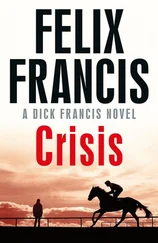On Monday morning I packed up my meagre possessions and set off from Chester Square to Wales. But first I would have to collect my Jag from the pub in Hanwell village where I’d left it while in London, having taken a taxi to the station. Hence, I caught the train from London to Banbury.
While on the train, I called the number on the business card that Detective Chief Inspector Priestly had given me at our interview. A voice answered but it wasn’t the DCI.
‘DS Dowdeswell.’
‘Ah,’ I said. ‘You’ll do. This is Bill Russell.’
There was a pause while he worked it out.
‘Yes, Mr Gordon-Russell,’ he said. ‘What can I do for you?’
‘I’d like access to my property. I need some clean clothes.’
There were some mumblings from the other end that I couldn’t really hear, as if the sergeant was speaking to someone else with his hand over the microphone. Then he came back to me.
‘That shouldn’t be a problem. We have finished our forensic examination of the murder scene.’
‘Great,’ I said. ‘I’m on my way there now.’
‘Then you will need the locks removed.’
‘What locks?’
‘We applied hasps and padlocks to the external doors to prevent anyone gaining access before we had completed our investigation.’
‘Me, you mean?’ I said cynically.
‘Well, yes,’ he agreed. ‘But there is also some damage to the external kitchen door, which needed securing.’
‘Damage?’
‘Yes,’ said the detective sergeant. ‘It was through the kitchen door that Mr Bradbury made his entrance when he saw Mrs Gordon-Russell lying on the floor. Basically, he kicked the door down.’
‘And you’re certain that that was done after she was dead?’ I asked.
‘What do you mean?’
‘Why are you not considering the possibility that Joe Bradbury broke into my house to kill his sister?’
‘Who says we’re not?’ he said. ‘We consider all possible scenarios.’
At least that was a start.
‘So why are the newspapers reporting that I’m the murderer?’
‘I can’t speak for them.’
‘Why not? You’re giving them the information.’
‘I am not.’
‘Well, someone in the police is. Otherwise, how would two press photographers have known that I was at Banbury Police Station on Friday? They must have been tipped off.’
‘Perhaps it was a coincidence,’ the DS said.
I snorted my disbelief but realised that continuing to argue the point would get me nowhere. ‘So how do I get the padlocks removed?’
‘I will get our works department to do it.’
‘When?’ I asked. ‘I’m on my way there now.’
‘It won’t be done right away. Probably tomorrow or the next day.’
‘Then can I come and collect the keys from you? I’m currently on a train to Banbury and I need access today.’
There were more mumbling discussions in the background.
‘Yes, okay,’ said the DS finally. ‘The forensic team left the keys here. I’ll leave them at the front desk for you to collect, but we’ll need the locks and keys back after you’ve been to your house.’
‘I’ll be with you in half an hour,’ I said, and hung up.
I stared out of the window as the world rushed by.
Did I really want to go into my house? Especially into the kitchen.
The very thought of it was making me shake but I needed some stuff apart from clothes, particularly the chargers for my phone and computer. I suppose I could have bought new ones but there were other things I needed too, not least the medication I took each night to keep my cholesterol in check, having now exhausted those that I’d had in my washbag.
A previous passenger had left a copy of a newspaper on the table to my left and I glanced at the bold headline on its front page: STILL NO ARREST IN DOG-LEAD MURDER.
For goodness’ sake! Is there still nothing more important to report?
Even though I knew that I shouldn’t, I could not help but read the start of the article beneath the headline.
‘Thames Valley Police are coming under increasing pressure to make an arrest for the murder of Amelia Gordon-Russell, found strangled in her own home near Banbury last Wednesday. A police spokesman has told this newspaper that their investigation is proceeding and they expect to detain a suspect in the near future.’
And we all knew who that would be, didn’t we?
I tossed the paper back onto the table. I didn’t want to read any more. Police spokesman, my arse! Someone was making it up. But perhaps going to the police station was not such a good idea after all. The phrase ‘putting my head into a lion’s mouth’ sprang to mind.
I might never get it out again.
I took one of the taxis waiting outside the railway station and asked the driver to wait outside while I went in to collect the padlock keys from the police. I didn’t really expect to be detained, did I? But my anxiety heightened somewhat when I found that the keys were not at the front desk as promised.
‘Are you sure?’ I asked the woman sitting behind the glass screen.
‘Quite sure,’ she replied.
At that point DS Dowdeswell came into the foyer and my heartbeat ramped up a few notches.
‘Ah, there you are,’ he said.
He came towards me but there were no handcuffs at the ready in his outstretched mitts, just the bunch of keys for the padlocks.
‘There are four of them,’ he said. ‘We put locks on all the doors including the conservatory, and the French windows in the dining room. I don’t know which key works which lock. You’ll have to try them.’
He hesitated as if there was something else he wanted to say, but I wasn’t waiting around to give him time to change his mind. I took the keys from him and walked briskly out of the door, hardly daring to breathe, and quite expecting to be recalled. But I made it unchallenged to the taxi and we quickly set off with me sighing deeply on the back seat.
Calm down, I told myself, you’ve done nothing wrong. I was glad to be away from there, nevertheless.
‘Hanwell village, please,’ I said to the driver. ‘Drop me outside the pub.’
Which he duly did.
I walked down the side of the building to my Jaguar, which was waiting in the corner of the car park where I’d left it.
I was just turning it round when Mark Thornton, the publican, came out to see me.
‘I thought that must be yours,’ he said gruffly. ‘You’re lucky I didn’t call the police over the weekend to report an abandoned vehicle, but someone from the village recognised it.’
‘I didn’t think you’d mind,’ I said.
He clearly did.
‘Don’t leave it here again, do you hear. Some of my regulars aren’t happy about it and nor am I. Not with everything about you in the papers.’
I forced a laugh. ‘But surely, Mark, you don’t believe all that guff.’
‘You’re not welcome here and neither is your car,’ he said in all seriousness. ‘Amelia was very popular with people in the village and feelings are running high.’ There was no flicker of warmth and no hint of compassion for my loss. ‘Next time, I won’t be able to stop them scratching the paintwork or slashing your tyres.’
‘I didn’t kill her,’ I said for the umpteenth time, but I could see that I was wasting my breath. What chance did I have when even my closest friends thought I was guilty?
I drove the hundred and fifty yards up the road to the Old Forge.
The yellow crime-scene tape of last week had been removed so I pulled the Jag into the driveway.
Someone had sprayed the word KILLER in white paint in foot-high capital letters across the dark green of the garage door. Charming. Why was it that, with the emergence of social media, ordinary people, probably my kindly neighbours, who wouldn’t have dreamed of doing such a thing in the past, now felt that it was acceptable to vent their anger in such a fashion?
Читать дальше
